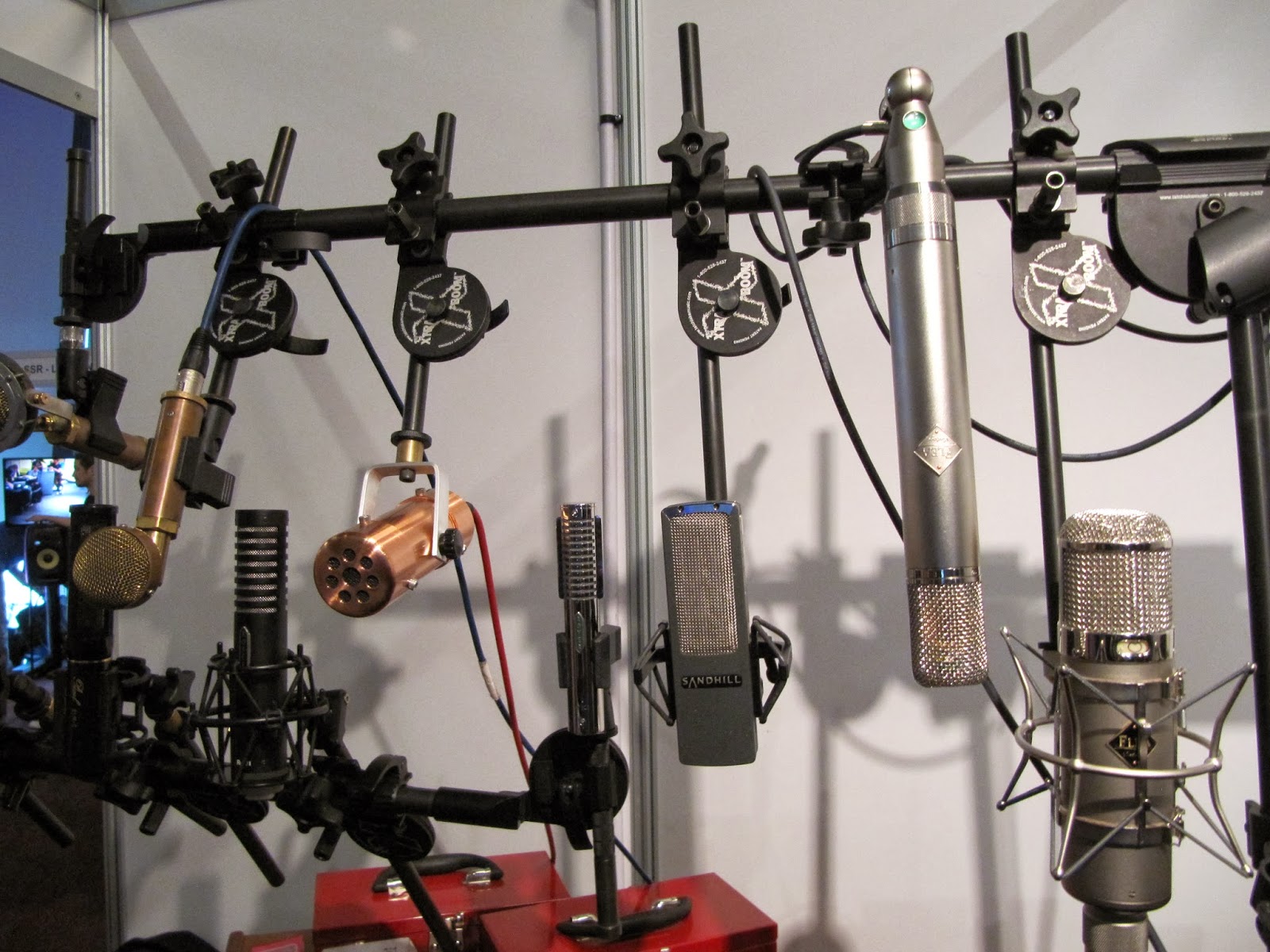Pro AudioEurope (Funky Junk) was showing a wide variety of microphones. This included
Flea’s versions of the classics U-47 and AKG C12. Worth mentioning were also a set of microphones from Ear Trumpet Labs that could prove useful for anyone working with acoustic retro-recordings (think roots, country, blues etc.) Here's what Tape Op Magazine wrote about the Edwina model.
What really caught my
attention though, was Placid Audio’s Copperphone. The Copperphone sends you
right back to the early part of the last century and you don’t need to add much
static to sound like you’ve recorded your audio on a wax-roll! For any
vintage-lover that has yet to discover Placid Audio, click on their webpage andplay the sound-samples for a discovery. If Roland Barthes was right, that early
photography had a poetry to it that was lost with higher fidelity, we might
just be on the trail of a lost poetry in sound here! This is not the most
useful microphone I found, but probably the most exciting.
AEA N22
The new AEAN22 is a new ribbon mic aimed at the singer-songwriter and semi-professional marked.
That doesn’t mean that it is particularly cheap, but for a high-end ribbon mic
it is not amongst the most expensive neither. On vocals the classic ribbon-tone
was there instantly—clear and open with ‘smooth’ highs. I was impressed by what
I heard, even with a noisy exhibition floor in the background. On this link you can
find AEA’s own promo-video, and if you look through the fact that they are
trying to sell you something, it provides some interesting information. One of
the engineers in the video draws a parallel to the sound of a U-47 tubecondenser. It may sound like a stretch of imagination, but it actually does
make sense. I will disagree with AEA on only one thing: I don’t think this is a microphone mostly for the singer-songwriter marked. This will be a great
microphone for any application that requires a ribbon mic. If it is as good as
it seems it might be a clever trick by AEA to pitch it towards the
semi-professional marked. Because it might just be fit to fight in the very
top-league of the professional marked. And that would include competing for
your attention against some of AEA’s more expensive models.
The Nuvo
N22 requires phantom power which is quite unusual, as phantom normally would
break a ribbon mic. The N22 contains a a small powered amplification circuit, and the microphone will
hence deliver a higher output than traditional ribbons. The grill is made to
decrease the chance of breaking the ribbon by sound pressure and the mic can take quite a lot of SPL. Everything considered we are looking at a very solid all-round microphone.
AEA RPQ
My impression
of the AEA N22 was shaped in part by the pre-amp that was placed in the signal
chain. This was a new dual channel pre-amp especially designed to work with
ribbon microphones. You can also get the amp as a mono lunchbox-module called RPQ500.
 |
| AEA RPQ500 |
Neumann TLM 107
Neumann has
just launched a new microphone in the TLM-range. The TLM 107 is a multi-pattern
microphone with a very flat frequency response that is meant for a wide variety
of applications. The frequency-chart reveals a lift on the graph from roughly 8
to around 13 kHz and a slight dip around 5kHz. Neumann writes that particular
attention has gone towards the reproduction of ”s” sounds. It can also handle
very high SPL levels.
This begs
the question, do we have a contester to AKG’s 414 here? (“Multi-pattern
workhorse that handles high SLPs and is meant to work for a wide set of
applications, while maintaining a very flat frequency response?”) Retailing in
the UK at around 1100 Pounds the price is not unattractive neither.
 |
| Neumann TLM 107 |
 |
| Both the AEA N22 and the TLM 107 received the ‘Best of Show Awards’ at the AESconvention last October. |



No comments:
Post a Comment